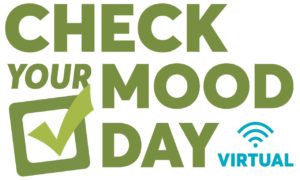Dear CDA Families,
It has been over 18 months since the beginning of COVID-19 and no one is certain how much longer it will last. Many of us continue to feel the stress over the pandemic and various changes it has forced us to deal with.
As adults, it can sometimes be difficult to recognize stress until symptoms show up. The effects of stress can show up differently for different people, such as:
- Physical: such as headaches, fatigue, and sleep issues.
- Mental: feelings of anxiety, sadness, anger, lack of focus or motivation, etc.
- Behavioral: Social withdrawal, irritability, overeating, etc.
For children, no matter their age, they may not be able to identify it, talk about it, and it may not show up like it does for adults. Stress will present itself a little differently for them.
For example, babies may have changes in their sleeping and eating patterns. Toddlers may go back on developmental milestones they had already achieved. Some common ways stress presents itself in school-aged children is in their day-to-day behavior. They may be more irritable (cranky), more energy (hyper-active), have a hard time focusing, express boredom, and even sometimes may show some brand new behaviors.
Does this sound familiar?
It is important to remember that our children look to us, parents and caregivers, as their models for healthy behavior. They are wired to be regulated by our emotional signals. Therefore, it is important to be intentional about your own wellbeing and taking care of yourself in order to be the best version of yourself for you and your family.
There are simple things you can do every day to help regulate yours and your child’s stress response and help create a defense against the negative impacts of stress. Below are some tips from the California Surgeon General’s Playbook on stress relief during COVID-19
Step 1: Talk About What’s Going On
- As parents and caregivers, it’s important to talk to children about emergency situations in age-appropriate language and approach the discussion in a calm and sensitive way to help them cope.
- Starting the conversation is sometimes difficult. Sometimes asking them what they have heard about coronavirus and if they have any questions or fears is a good place to start the conversation.
- Follow up these details by focusing on the things we can control to help us stay safe and healthy. (Hand washing, covering coughs/sneezes, etc.)
Step 2: Supportive Relationships
- Double down on supportive relationships within your household and help your kids maintain connections with friends and loved ones outside of the home by phone, video chat, old-fashioned letter writing, or age-appropriate social media.
- Turn off media and devices for high-quality time together making art, dancing, cooking, or reading at home.
- Remain in touch with mentors, friends, and family by phone or video chat, including schools and community- or faith-based organizations
Step 3: Exercise Daily and Healthy Sleep
- Engage in physical activity every day. Have your family join in a dance party, 35 jumping jacks here and there, hula-hooping contest, power walk around the block twice, running, bedtime yoga, 10 pushups, 20 jumping jacks, and/or jump rope, the list can go on and on. Bottom line – get your bodies moving and heart rates up to burn off stress.
- Get sufficient, high-quality sleep. This may be particularly hard right now, but things that help are going to sleep and waking up at the same time each day. Making a routine of reading a book to or with kids before bed. Create a calm place for sleep that is cool, quiet, and free of distractions. Turn off electronics at least a half-hour before bed.
Step 4: Mental and Behavioral Health Support
- Engage in mental health care for yourself and/or for your child. Minimize the amount of exposure/consumption of news or other media content that feels upsetting for both you and your child. If your child currently sees a mental health professional, ask that those sessions can continue via video or phone sessions for psychotherapy, psychiatric care, or substance use treatment. There are new laws to support your provider to do phone and video visits. Keep your own mental health appoints via video or phone calls, as well. Have open conversations as a family about emotional and mental health.
The routine you create with your family to combat stress is what will help keep everyone on track. Remember “our bodies are the houses of our feelings” and sometimes our bodies need extra support in taking care of what they are holding on the inside.
Upcoming Events
CalHOPE

CDA has partnered with CalHOPE of San Diego to offer group presentations on stress and wellness management. Keep a lookout for dates and registration and other group presentation on our Workshops page.
Save the Date: Thursday, October 7th – Virtual Check Your Mood Day

Good mental health starts with you. Join us and other community members across San Diego County on Thursday, October 7th to get FREE mental health resources, information, and self-administered screenings to Check Your Mood and help raise awareness for mental health!
For a list of upcoming workshops and events, visit our Workshops page!
Additional Resources
Coping with Stress – CDC
Coping with Anxiety – HelpGuide
Coronavirus Mental Health Toolkit – HelpGuide
How to Overcome COVID Re-entry Anxiety – Anxiety & Depression Association of America (ADAA)
Tips for Managing COVID Fatigue – ADAA
Managing Coronavirus Anxiety: Tips and Strategies
National Alliance on Mental Illness San Diego
San Diego Family Care Nonprofit
Family Resources Team
For individualized assistance with resources or referrals during COVID-19 closure, please contact our Family Resources Team via the contact form on our workshops page:





